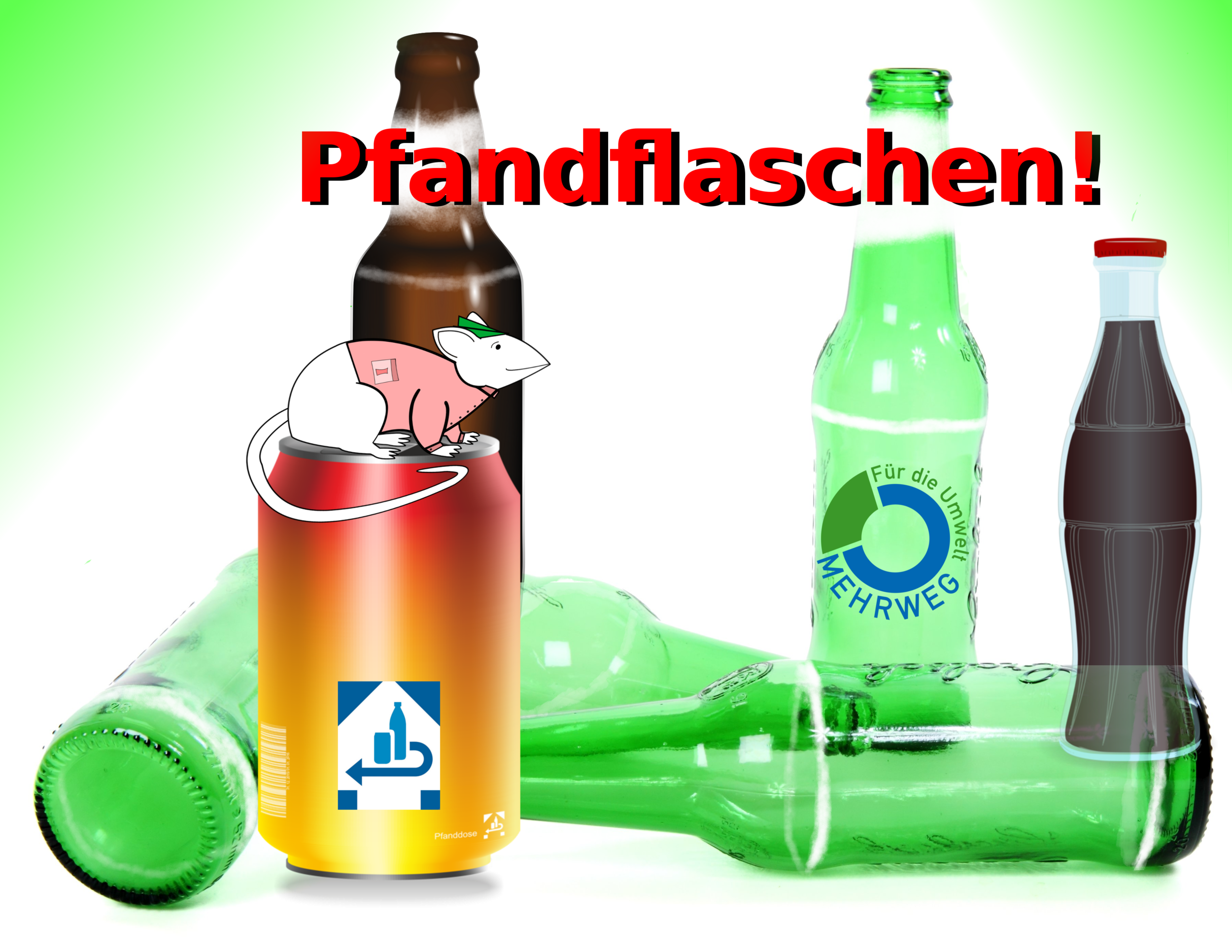Pfandflaschen! (Bottle Deposits in Germany)
Everyone loves a good water, soda, beer, or other fizzy drink every now and then. In Germany, as with the U.S. and a number of other countries, bottles for such drinks have a Pfand, or deposit on them that you pay when you buy the drink, and can get back later. For Americans first coming to Germany though, you may be surprised by the cost associated with the different bottle types, and that the difference in cost isn't associated with the material (plastic vs metal vs glass), but rather with how the bottles can be reused!
To start, there are three different types of Pfand carrying things to look out for: Einwegflaschen (single use bottles), Mehrwegflaschen (multiple use bottles), and Kisten (cases).
Einwegflaschen can be plastic, metal (cans), or glass (typically cheap beer bottles with twist off caps), and carry a Pfand of 25 cents each. For those doing the mental math, yes, this means that buying those large cases with 20 or 30 of those 12 or 16 ounce bottles of water that everyone buys in bulk back in the U.S. isn't going to be happening. These bottles are labeled "single use" because they are PET plastic, and will be sent off to a recycling plant and broken down for scrap material, as all deposit bottles in the U.S. are. Look for the blue and white symbol shown on the can above to double check your bottle if you aren't sure if it's an Einwegflasche.
Mehrwegflaschen, or multiple use bottles, are, yes, cleaned and used again by the company that makes whatever drink you've bought for another round of bottling. You can usually determine if a bottle is a Mehrwegflasche if you notice a pair of matching while scored lines on the bottles (check out the green bottles above), which are a side effect of the cleaning machinery (fun fact: more scoring = older bottle). These bottles are usually 8 cents deposit for glass bottles, like beer or some soda bottles, and 15 cents for plastic bottles (though some glass soda bottles also are known to have 15 cent deposits rarely). If you look at the caps of these bottles, you'll notice that the glass bottles always require a bottle opener, and the plastic bottles have lids that are made to remove entirely, rather than leaving behind a small plastic ring on the mouth of the bottle that can't be removed easily. The glass bottles are also thicker than their single use glass counterparts, as well as most American glass drink bottles.
Kisten, or cases, usually carry a 1.50 Euro deposit, and are much heavier duty than the cardboard boxes common in the U.S. There are cases for everything from water, to beer, to fizzy tea, and the good news about these is that when you return bottles at a machine in a grocery store, you can almost always put the entire case in the machine, bottles and all, and have it counted as a unit.
Where to return Pfandflaschen?
As with American grocery stores and bottle deposits, most shops will not accept deposits from brands or products that they don't themselves carry. If you happen to have bought another product from a company that sells a different drink, many shops will still accept the deposit, as they can return the bottle to the company, even if the product doesn't matter. Larger stores, like Kaufland, generally accept just about any type of bottle, which can be useful if you happened to pick up a drink from a shop that you don't usually pass by.
Why are they so expensive?
Having such a high deposit on bottles and cans allows for companies to keep drink prices low, reduces raw material consumption, increases the amount of recycling (which is already quite high in Germany), and reduces the amount of bottles that end up as litter in cities and towns. Für die Umwelt (for the environment) indeed!

